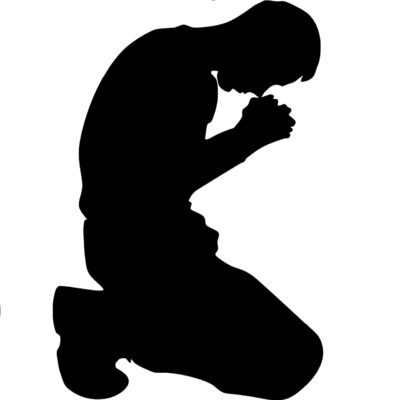Here is another article written by my friend Tom. He writes from a Messianic Jewish perspective and has been studying the concept of prayer. These are his viewpoints and not necessarily mine, but I find them very encouraging. I hope you enjoy what he has written.
I have had a topic that has been rather heavy on my heart as of late. As you know most of my studies revolve around Jewish tradition and the Hebrew roots of our faith. I would like to examine what prayer is and what it is meant to accomplish.
 Focusing the Heart
Focusing the Heart
The Talmud (Taanis 2a) refers to prayer as “service of the heart” (avodah shebalev). Prayer is an activity of the heart, with the heart and in the heart. When we truly pray, there is a deep movement inward and upward to connect with the ultimate source of all reality. When we are praying, we are reaching out and connecting with HaShem.
Intention (kavanah) is an integral part of prayer. It is the frame of mind, focus and concentration that we need when praying. The Hebrew word kavanah literally means “window” (as per the Book of Daniel 6:11), since with the right intention and focus we have the ability to open a window to our soul, to our deepest self, and to allow this internal, authentic self to be expressed and experienced.
The prerequisite is the negation of distractions, both external and internal, because only then can the process begin of filling the mind with the proper intention. That is, we first need the empty the vessel so we can later fill it.
The Gift of Prayer
Prayer is God’s gift to man. It gives us the opportunity to stand in front of the Creator of the universe and converse. Prayer offers us who are finite, the amazing opportunity to communicate with the Infinite, to talk and express our feelings, needs and desires in front of the Creator.
In Hebrew, the word for prayer is tefillah, suggesting that prayer is an act of tofel “connecting and joining.” When we pray, we reach out, go beyond ourselves, beyond the immediate, and connect with the source of all life.
Prayer is the greatest gift of all, as it allows us to lift ourselves out of the trivialities of our life, to abandon over-indulgence and materialistic gain and become spiritually elevated. Without prayer there would be no salvation! A Chassidic parable explains this well.
Once there was a mighty king who announced that all of his subjects could come and request whatever they wanted from him and their wish would be granted. Some people came and asked for gold, some for silver, and some asked to be promoted to high-ranking positions. One wise person asked to be granted the opportunity to speak with the king three times a day. Hearing this request, and realizing that the wise man felt conversation with the king was of greater value than any jewels or position, the king decreed that access should be granted. As a token, the wise person could pass through any chamber of the palace on his way to the throne room and take what he likes.
The “wise man” is representative of the believer, and the “three times per day” are representative of the three minimal daily prayers required in Judaism.
Prayer and Self-Examination
The Hebrew word tefillah shares its root with yefalel, which means “judgement,” and with pallel, which means to “judge” (as used in Psalm 106:30). To pray (lehitpalel) is to judge oneself. Prayer is a time when we are alone with ourselves and in the presence of God. This is a good time for introspection and self-inspection; this is a good time to observe our inner-self, examine where we are headed, what needs improvement, as well as the positives in our life.
Often, the best way I’ve found to do this is to simply notice what grabs the mind as I am trying to concentrate on the prayers. If the mind continually wanders about, we can observe where it wanders. Of course, it would be better to let go of these thoughts since they are intruding on our focus. But by noticing how these thoughts continue to creep in, we can discover what our concerns are and work to fix the trouble spots.
Kneeling in the midst of prayer, filled with an overwhelming awareness that we are in the presence of the infinite Creator, we find our walls of self-delusion and deception come crumbling down. True honest communication occurs. We cannot fool ourselves any longer. When we open ourselves to God, our life becomes ever more transparent, and true work can be done toward self-improvement.
For this reason prayer is also called avodah meaning literally “work” or “service.” The word avodah shares its root with ibud which means “working over/transforming.” It is through the act of praying that we can work ourselves over and transform for the better. We can open ourselves up to experience, and re-experience, our authentic selves.
Prayer and Relationship
Beyond the paradigm of communication, prayer allows us to transcend relationship. Relationship implies inherent separation, two separate entities coming close, yet remaining on some level always apart. The high point of prayer is when we attain unification (deveikut), cleaving to God until we can become as one with Him as humanly possible. It is where our personal “I” becomes enclosed with the “infinite I” and there is a melding of the “two” into “one.”
When we achieve the maximum potential in prayer, we transcend our limited self and dip into the limitless infinite. I believe that we demonstrate this truth at the height of the prayers (while reciting the Shema), when we stand erect, not moving, speaking in a whisper, as the ideas we are expressing represent the abandonment of self.
As the “separate self” ceases to exist, the “transcendent self” emerges. And so at this peak level, our prayers are no longer focused on our selfish needs.
The Talmud (in Tractate Berachos 30b) says that “one may recite the prayers only in a state of heaviness of the head.” Literally, “heaviness of the head” means humility.
When we do not have what we need in order to maximize our spiritual potential, that is not only a deficiency in us, rather is is a lack of Godliness being expressed.
And so, on this level of prayer, we are not asking for our selfish desires to be fulfilled. It is no longer our ego speaking; there is no longer a separate autonomous self that is expressing its needs. Rather it is the soul expressing a transcendent desire for Divine revelation. Our deeper self is appealing to God to grant us what we need so that Godliness should be manifest and actualized. Yeshua taught us how to pray in Matthew 6; it is our job to utilize prayer. At this pint our needs are nothing less than an extension of Divine want and desire to be fully present in our world until the manifestation of the world to come.
Selecting one of the images below will take you to Amazon to view the book.






